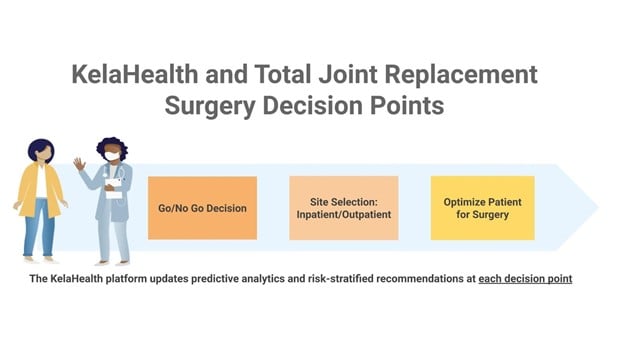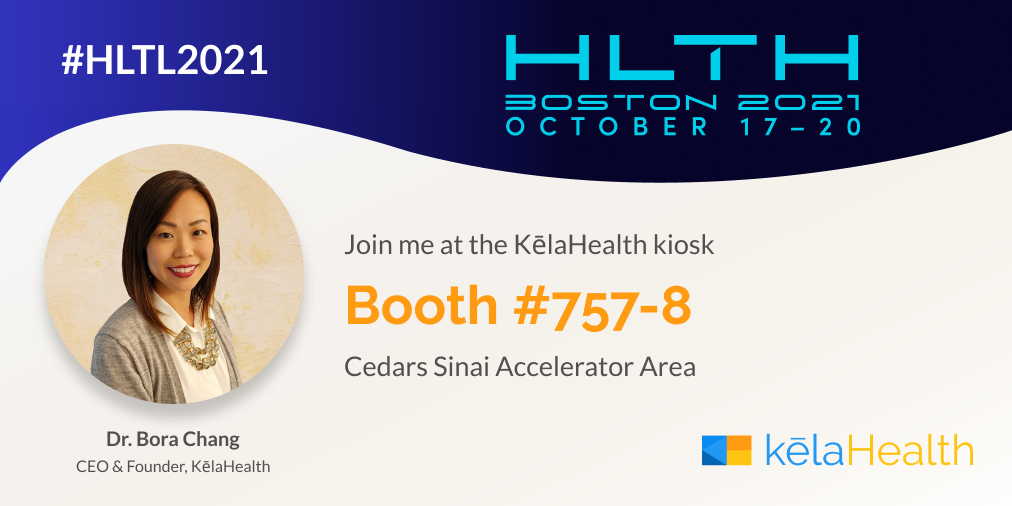.png?width=2024&height=1012&name=Blog%20post%20(1).png)
As we reflect on 2023, it is both exciting and surprising to see how much has been accomplished to advance KelaHealth’s strategic initiatives in just one year. We have launched innovative projects, secured new partnerships, completed a federally-funded project, and continued to advance our work to reduce complications and optimize surgical care for all patients. Some of the highlights of the year are outlined below.
In the Spring, our new collaboration with Advocate Aurora Research Institute was featured in Fierce Health. In this project, the KelaHealth Surgical Intelligence Platform is being deployed at Advocate Aurora (now Advocate Health following the merger with Atrium Health) clinical sites over a 12-month period to evaluate and optimize patient outcomes. One innovative feature of this project is the incorporation of robotics data from more than 37 Intuitive da Vinci Surgical Systems robots, which are used by 284 Advocate and Aurora surgeons in Illinois and Wisconsin. Through the use of machine learning models, the data is used to generate risk prediction models tailored to each patient, which are integrated into the electronic health record (EHR) for ease of access by the surgical care team. Bora Chang, MD, CEO and Founder of KelaHealth, explained, ““With surgery comprising 50% of Medicare spending, it is imperative for health systems to explore new ways to improve their stewardship of these resources. The modern surgical process generates tremendous amounts of data – from robots, medical devices, instruments and sensors – yet its potential remains untapped. Our core competence is translating these data points into predictive insights and effective interventions enabling hospitals to operate smarter, reducing the cost and improving the quality of surgical care.”
Over the course of the year, we leveraged the Advocate Health partnership to develop an important shift in our business model, pivoting to target companies serving customers and providers in the healthcare industry. Approaching 1 million patients served across Advocate Health’s 67 hospitals, our partnership with Intuitive is the first large-scale integration of medical device data to surface how surgical approaches and procedural data impact patient outcomes and financial decision making. Naturally, this success has attracted the attention of several other Fortune 500 medical device and software vendors seeking to enrich their offering with Kela’s unique “AI” - actionable intelligence.
In August, we completed our National Science Foundation (NSF) Small Business Innovation Research (SBIR) funded project, “SBIR Phase II: An adaptive machine learning-based platform to improve surgical quality and patient outcomes.” This award provided approximately $1.4 million in non-dilutive funding over four years. The overall goal of the project was to help usher in personalized and tailored surgical care within a shifting healthcare context toward value-based care. This project expanded upon KelaHealth’s previous NSF Phase I STTR award, which included predictive engine development, scalable data processing pipeline development, and hospital stakeholder engagement activities. In Phase II, we focused on further developing the technology to facilitate its commercial use and integration in clinical settings. Through these activities, KelaHealth has demonstrated the value of this technology and introduced our risk prediction platform as a holistic surgical solution into a broader market. We are grateful for NSF's backing and belief in new technologies that impact patient lives.
In December, a new peer-reviewed journal article demonstrating the impact of the KelaHealth platform on patient outcomes following colorectal surgery was published in the Journal of Surgical Research. This research paper, led by researchers at Duke University (Nellis et al., 2023), found the KelaHealth platform was associated with a 21% reduction in acute kidney injury and a 24% decrease in expensive readmissions following colorectal surgery. Speaking about the impact of this work, Christopher Mantyh, MD, the study’s senior author and Vice Chair of Clinical Operations at Duke Health, stated, “As a colorectal surgeon, it is encouraging that AI may be a useful tool for predicting risk and preventing post-surgical AKI and readmissions. The use of a risk-prediction platform like Kela’s to help surgeons make more informed treatment decisions could be a game changer for our field.”
The article was featured in MedCity News, which stated, “San Francisco-based KelaHealth is an example of one company that appears to understand the importance of demonstrating its worth through published research.” We are committed to demonstrating the effectiveness of our platform through research, and have previously worked with academic researchers to evaluate the impact of our platform on reducing complications following vascular surgery. This work, which was also published in a peer-reviewed journal article (Chang et al., 2020), showed that implementation of the KelaHealth Surgical Intelligence Platform resulted in a reduction in surgical site infection (SSI) rates as well as decreased healthcare costs from unplanned readmissions. We are proud of KelaHealth’s track record of providing real-world evidence that our Surgical Intelligence Platform is effective in reducing surgical complications and improving care for patients.
Further underscoring our evidence-based approach, in December, KelaHealth was featured in a Venture Valkyrie blog post by Lisa Suennen, a venture capital investor and the managing partner of Venture Valkyrie, LLC. The blog focused on the need for digital health/ health tech companies to provide evidence to prove the clinical and economic value of their AI models. As Lisa explained, “Delivering meaningful quality/cost/experiential results as backed by legitimate studies is priceless.” KelaHealth is described in the blog as, "one of the few in this space closing the loop to demonstrate their models are improving patient outcomes."
In 2024, we are looking forward to an exciting new announcement coming early in the year. We also expect to recruit new team members who will join us in advancing our work to improve patient outcomes and deliver individualized care throughout the surgical journey.




